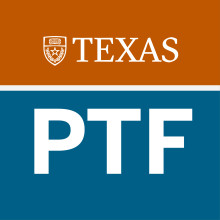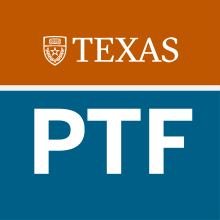Individual Fellow Initiatives

Characterizing Complexity and Frequency of Feedback Given to Students: What Actually Helps Achieve Learning Outcomes?
This project is aimed at improving learning outcomes in programming courses at UT Austin, specifically targeting ECE312 (Software Design and Implementation I) and ECE360C (Algorithms), but that can potentially be expanded to other programming courses and beyond. The project is designed to enhance students' understanding of fundamental concepts by characterizing the complexity and frequency of feedback provided during completion of assignments.

Does Increasing Course Depth While Reducing Breadth Improve Learning in College Students?
Student-centered learning strategies have been effectively used to increase academic performance and learning in students. Educators have hypothesized that course content reduction can also improve student learning. However, support for this idea is lacking. In the present project, I am planning to assess whether a content reduction strategy increases the academic performance of upper-division stem students at the University of Texas-Austin.

Artful Learning: Integrating Art into Teaching Practice
This project aims to transform academic instruction by integrating art into the classroom. We believe that art can make subjects more engaging and help students connect with the material on a deeper level. By integrating diverse forms of art—such as virtual art, music, film, theater, and more—into the curriculum, we aim to create a more interactive and stimulating learning environment while also supporting students' mental health through therapeutic art sessions.

Implementing Computational Modules into the Materials Science and Engineering Undergraduate and Graduate Curricula
The development of increasingly powerful computational resources has made computational competencies new core forms of literacy that should be formed as part of basic education across all STEM fields.

Disability Justice as Pedagogical Practice
Within social work curriculum, the topic of disability is either explicitly absent or medicalized. The lack of a rich understanding of disability as a cultural experience that intersects with other cultural experiences is concerning given our ethical guidelines of cultural competence and equity. Additionally, not only are students excluded via this omission, but so are faculty, staff, and social workers working in the field. Approximately a quarter of the population identifies as having a disability, yet our curriculum barely acknowledges their experiences.

Building Rigorously Compassionate Syllabi: Fostering Individual Accountability and Community Care
Our project seeks to revitalize the syllabus document as a tool of inclusion. We are interested in making visible the “hidden curriculum” with which students often struggle. The syllabus language, grading and attendance policies, communication and assignment fulfillment methods, course calendar flexibility, course material formats – these can all contribute to developing personal accountability and investment in community.

Early Exposure to Data Skills in Introductory Biology Sequence
Biology continues to be seen as a field for science-interested, but math-disinterested students. However, due to the surge in data use in all biology careers, and the focus in research on sequence data, there is a strong need for data skill development in biology degree programs. Math anxiety poses a specific challenge for biology education. A suggestion to overcome this, is an early introduction to data skills in the two-course sequence of Introductory Biology.

Offering Real-World Opportunities for Students Enrolled in Statistics and Data Science Undergraduate Research
The primary goal of this community-based service project is to provide experiential learning opportunities for undergraduates interested in statistics and data sciences while supporting the broader Austin-area community. Coordinating with local organizations, students enrolled in some of our SDS courses are gaining hands-on experience in data analysis while exploring authentic contexts. This innovative and collaborative effort provides a community-based model that allows students and local organizations to co-develop and answer real-world research questions.

Teaching Law and Religion
The aim of my proposed project is then the integration of the seemingly disparate studies of law and
religion. The study of both is an important branch of comparative law and global legal history that I aim

Longhorn Mindfulness Project
This project focuses on mental health on campus. Specifically, the mental health and self-regulation challenges that mindfulness practices have been empirically shown to address: anxiety, depression, focus, and procrastination. There is strong empirical support for these benefits emerging around the 8-week mark of regular practice (10-15 minutes per day), which is feasible in the confines of the semester calendar.

Digital Research Apprenticeship: Projects For Intersectional Justice
Research and scholarship in Digital Humanities applies technology to humanities questions and subjects technology

Internship in the Media Industries
Internships have increasingly become a critical step in the college-to-career transition in the media industries and beyond.

Developing Experiential Learning in Organizations
My project, “Developing Experiential Experiences in Organizations,” assessed HDO students’ access to experiential learning
in organizations, particularly in the form of internships; additionally, our program aimed to provide more built-in
opportunities HDO students to engage in experiential learning. To gauge need, I surveyed HDO students. Results
demonstrated that many of our students were graduating without any organizational experience, especially first-generation

Race, Democracy, and Global Social Justice: How Studying Inequality and Vulnerability can Transform the World
My initiative will achieve better learning outcomes in undergraduate and graduate students in History and the LBJ School by examining the intersection of history and contemporary policy, specifically its disparate impact on communities of color. Currently, departments, centers, faculty and students work independently of one another and lack valuable opportunities to collaborate. Genuine collaboration has evolved into a rare and difficult concept.

Mentored Research Learning: An Evaluation
Mentored research defies the traditional higher education approach, which separates research and teaching into distinct activities. Instead, mentored research fully integrates faculty research activities and student learning. In this approach, researchers do not simply carry out their research in isolation with a paid set of PhD-level research assistants. Further, students do not simply learn from in-class lectures or more traditional out-of-classroom experiences, such as study abroad.

Podcasting as Experiential Learning in Classics
Students in pre-modern disciplines face greater challenges in finding productive and engaging avenues for Experiential Learning than students in fields whose connections to current events are more self-evident. Podcasting offers students of ancient Greece and Rome a way to connect with people outside their classrooms, both other students and interested members of the general public. It also requires them to hone their oral presentation skills and to think about how to present the same idea to different audiences, both of which are fundamental to critical thinking.

Student Success and Well-being
My project is designed to support engineering students primarily in their freshman and sophomore years, when they struggle the most, resulting in high failing rates. Students do not always implement the best study strategies as they transition from high school to college, and do not prioritize their self-care and well-being. College level coursework is significantly more difficult compared to high school level courses and require more critical and abstract thinking.

Engineering Sentences: A Cross-Disciplinary Training Program
Although Cockrell School of Engineering (CSE) undergraduates take a required engineering writing class, which I teach for Chemical Engineering, they typically struggle with writing laboratory and long-form research reports. Helping CSE students to overcome this obstacle matters because writing technical reports prepares engineering students for the writing-intensive work of a professional engineer. Faculty teaching these classes would also benefit from higher quality student work.

Watering Two Plants With One Hose: Protocolization of Progress to Promote Practical Resource Sharing
When I first became faculty at UT Austin, I inherited an existing course; for a variety of reasons, I felt the need to overhaul all of the lectures. This process, however, proved time-consuming and I found myself unable to complete all of the lectures as originally planned prior to the start of the semester. Moreover, even the lectures that I did overhaul continued to have flaws and I was growing increasingly frustrated with the continued inadequacy of my lessons, despite devoting considerable time and energy to them. This was disheartening and my other responsibilities (e.g.

Towards an Anti-Racist Climate in Nursing
(Project completed 2021) Systems of oppression gain their power from silence. Faculty in the School of Nursing and across the country are not always comfortable engaging in conversations about race and racism, but these discussions are necessary in order to address the disproportionately poor health outcomes experienced by BIPOC. In response to student and faculty concerns, this project seeks to move our school towards an antiracist climate by targeting multiple layers.

Diversifying Our Course Materials
(Project completed 2021) In my lectures, I rely on supplementary videos to break up the pace of the lecture and introduce new concepts. However, when I search for videos online, I have trouble finding a diverse representation. As a result, I end up with an oversampling of white male scholars in my course.

Teaching in Real Time
We teach in challenging times. As the world, and our campuses, become more connected our students grapple with the impact of challenging events both on and off campus. Faculty have asked for support and guidance for how to proceed within the framework of semesters and syllabi in order to cope or respond. Our faculty needs resources to help recognize critical moments and support for our pedagogical resiliency.

Data Analysis Tools: Integrating Computational and Statistical Techniques in the Environmental Engineering Curriculum
The goal of this project is to train the next generation of environmental engineers in computing and statistical techniques to solve big data problems. Current undergraduate students in the Department of Civil, Architectural and Environmental Engineering have little to no exposure to computational and statistical methods for data analysis (e.g., big data collected from sensor networks). I proposed to integrate computational techniques in several courses throughout the Environmental Engineering Degree.

Global Learning Experiences
Cross-cultural connections can deepen student engagement in the world around them and encourage their creativity about the course material. Such connections can happen in a UT classroom if the student body is particularly diverse, or if students participate in study abroad programs. Global connections are also being created through the Global Classrooms Initiative that connect UT students with students at universities from other countries through classroom activities, conversations and projects intentionally designed to encourage collaboration.

Medieval Digital Research Lab: A Pilot Upper-Division Course
The idea for this pilot course grows directly out of departmental and university goals to increase opportunities for Experiential Learning and for new technology exposure in the Humanities; and to involve more undergraduate students in original faculty research.

